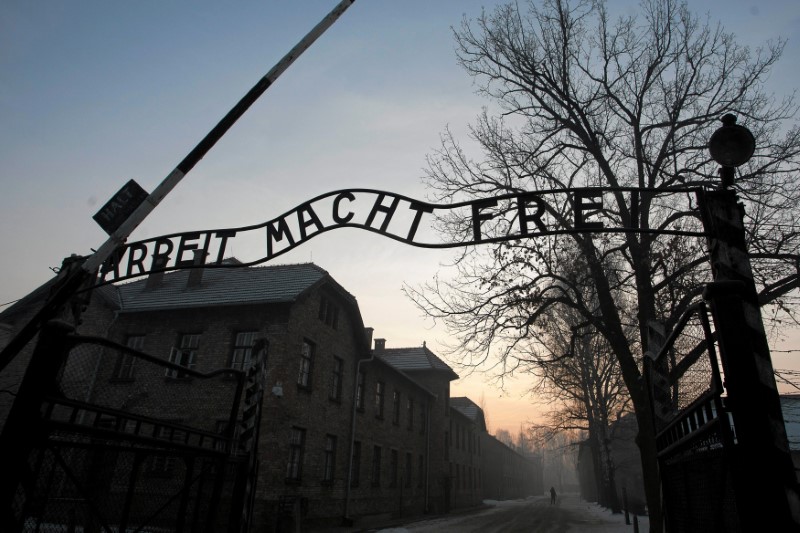OSWIECIM, Poland (Reuters) - Polish Prime Minister Beata Szydlo and some of the last survivors of Auschwitz paid homage to the victims of the Holocaust on Friday, 72 years after the Nazi death camp was liberated in the final throes of World War Two.
At a time when anti-Semitism is on the rise in Europe, Szydlo told dozens of people gathered in the camp that the suffering of the victims was a "wound that ... can never be healed and should never be forgotten".
"No one can understand this suffering," Szydlo said. "I want a message to go out again from this place today that what happened in this German camp was evil ... An evil that can be overcome with good. Memory and truth are our responsibility, they are our weapons against evil."
Nazi German occupation forces set up the Auschwitz-Birkenau camp in Oswiecim, around 70 km (45 miles) from Poland's second city, Krakow.
Between 1940 and 1945, Auschwitz developed into a vast complex of barracks, workshops, gas chambers and crematoria.
More than a million people, mainly European Jews, were gassed, shot or hanged at the camp, or died of neglect, starvation or disease, before the Soviet Red Army entered its gates in early 1945 during its decisive advance on Berlin.
Szydlo's conservative government worries that the world will forget that Auschwitz was a German camp, and has launched a campaign against any mention of "Polish death camps" in international media.

Of the six million Jews who died during the Holocaust, about half had been living in Poland.